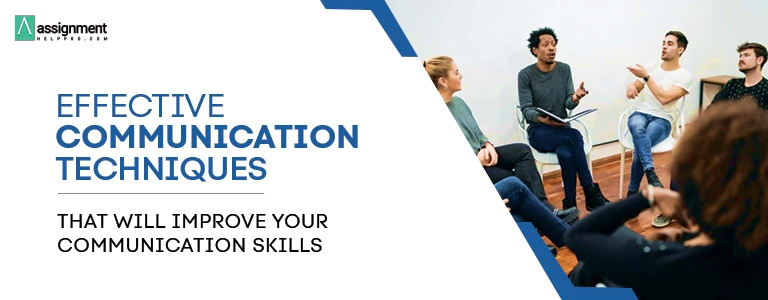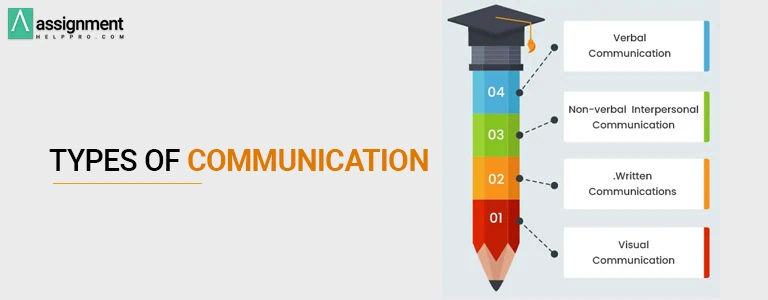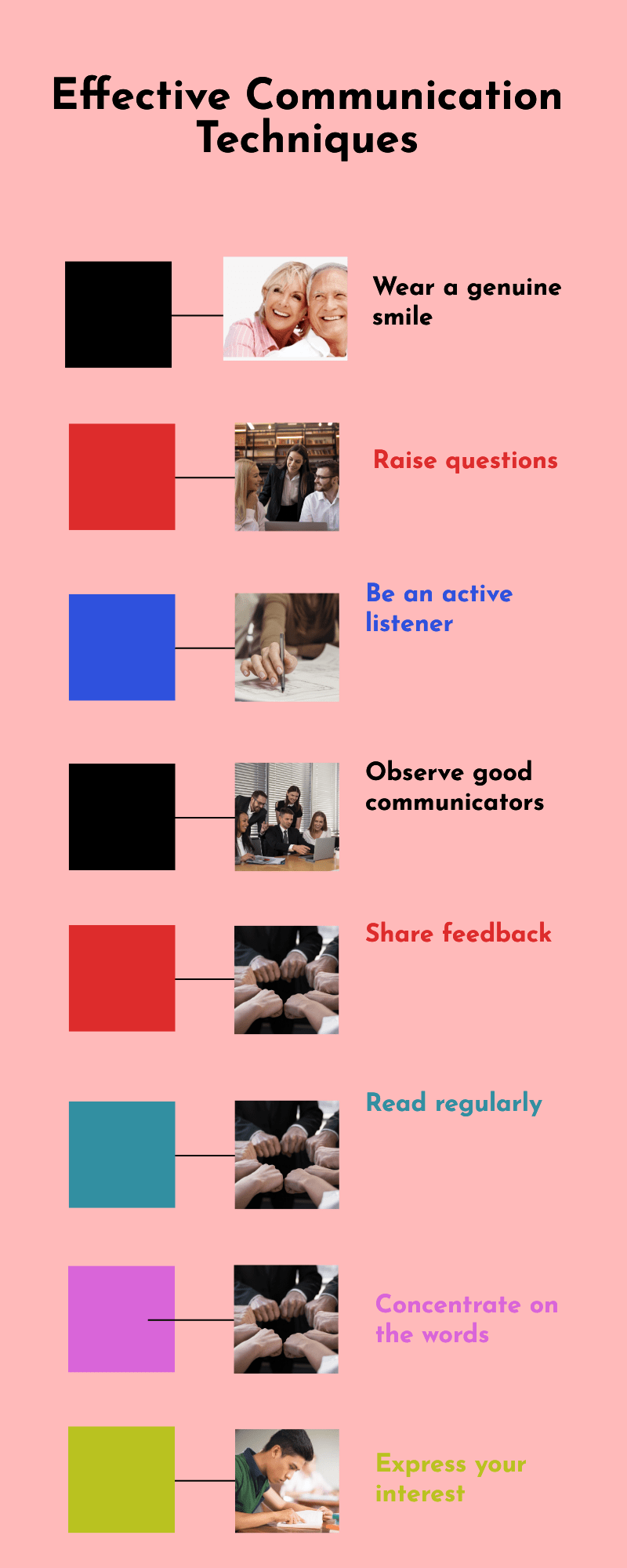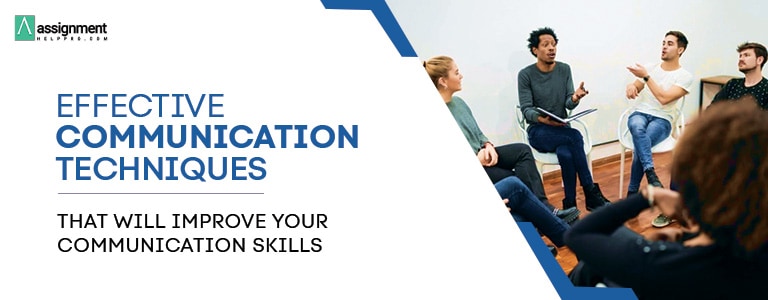Are you struggling to speak and write? Well, in general, to effortlessly communicate your thoughts and ideas to others, you must be aware of the basic communication techniques. In case, you are unaware of the essential communication strategies, continue reading this blog post. For your better understanding, here we have shared a list of effective communication techniques that will help to build your skills.
Basically, communication is all about sharing thoughts and ideas. In specific, to put forth your ideas to others, you need to either speak or write. No matter whether it is speaking or writing, whenever you are about to communicate, you need to frame your words and present the entire context in an understandable format to your audience. At times, the unintentional words that you convey may go in the wrong way. So, to avoid all those word confusion, you need to communicate effectively.
What is meant by Effective Communication?
Presenting an idea or thought clearly through words and nonverbal cues so that another person can easily understand it is the essence of effective communication. The original message you want to convey will not be properly delivered if your words convey one meaning and your body language conveys another. When both parties clearly comprehend what is said or written, communication is said to be successful.
You need to be proficient in all forms of communication and be aware of all communication techniques to communicate effectively.
What are the Different Types of Communication?
In general, communication is of three main types, namely
- Verbal Communication
- Non-Verbal Communication
- Written Communication
Verbal Communication
It is an oral form of communication where you need to communicate by transferring words with the help of sound. It is one of the best communication forms used predominantly by people to transfer information easily. When verbal communication is used, people can conveniently understand the message that is being spoken. It can be formal or informal too. For business purposes, you can use formal communication and for sharing personal messages, you can use informal communication.
Non-Verbal Communication
It is another important form of communication that focuses on body language or gestures. Before you begin speaking, the opponents will first observe your body language and determine your level of confidence and interest. Your body language usually conveys a lot of information. For example, if you yawn while attending a seminar, then it will show that you are disinterested in attending the seminar. Likewise, if you walk in a dull way, then it indicates that you are not confident. So, in order to create a good impact on others, you must have strong interpersonal skills.
Written Communication
It is one of the oldest forms of communication where you need to use writing to transfer your ideas to others. In the olden days, people used to write letters and post them in mailboxes but now after the advent of the digital era, the use of email, SMS, and WhatsApp messages stands as examples of written communication. Similar to verbal communication, written communication can also be either formal or informal. You must know when to use the type of formal and informal communication.
Visual Communication- A recent trend
Another popular communication that is recently ruling the digital world is Visual Communication. Mainly, companies use this form of communication for their marketing purposes. With visual elements, you can easily spread any type of information to a larger set of audience. Some common visual elements that companies use are logos, animations, presentations, videography, and illustrations.
Why Communication Skill is Important for a Person?
Talking alone is not enough to communicate. It includes body language and speech tone among other things. Communication is essential to our day-to-day lives, and if you have strong communication skills, you can achieve great heights. Moreover, it would aid you to shine in both your personal and professional life. Particularly, if you go to a job interview, the interviewers won’t be searching for the right answers; instead, they’ll test how well you can communicate with people. As a result, you need to be able to communicate well. The advantages of having strong communication skills in everyday life are outlined below.
- You can easily clear a job interview.
- Strong communication skills will help you to boost your confidence.
- It attracts people to you in professional settings and social gatherings.
- You can reduce conflict and misunderstandings.
- It helps you to solve problems well in both your personal and social life.
- Good communication skills will give you many opportunities for career advancement.
- It improves your overall productivity.
How to Improve Your Communication Skills?
As the benefits of communication skills in our life are many, it would be helpful if you knew how to effectively transfer your ideas to others. In order to communicate constructively and build your communication skills, you must have good knowledge of communicative techniques.
In general, communicative techniques are categorized as non-therapeutic and therapeutic. The therapeutic is used extensively in the healthcare environment for the betterment of the patients and the non-therapeutic is used predominantly for both personal and professional communication purposes.
Effective Communication Techniques
As said earlier, communication involves both verbal and non-verbal cues. So, when you wish to improve your communication, you must concentrate on all the communication types. Mentioned below are some common and effective communication techniques that will help you develop your communication skills.
Wear a genuine smile
Whenever you communicate, wear a genuine smile because your smile will make you real and convey a kind of warmth and openness to the one with whom you are communicating.
Don’t try to give a fake smile as it will stand as a symbol of arrogance. Your listener can easily detect falsity in your smile and will consider the words from your mouth as a lie. If you wish to earn others’ trust, never give a forced or manipulative smile.
To communicate effectively, you should stay real in front of another person and speak naturally by wearing a genuine smile.
Raise questions
You can learn about something only when you ask questions. If you raise more questions, you can clearly understand other people’s thoughts and gain new information about that person. Also, you can actively engage with another person and keep your conversation alive by asking questions.
Don’t ask yes or no kind of questions because, with close-ended questions, you may not gather more details as the answers will be within a minimal number of words. You can ask close-ended questions to get basic information quickly. Always ask open-ended questions so that the other person will provide lengthy answers, and from those answers, you can get detailed information.
Be an active listener
If you want to be an effective communicator, then practice active listening. Every time a person speaks, give close attention to their body language and the words they say. You can respond properly only when you understand what the other person speaks. Active listening will make you immersed in the conversation and will show another person your interest in understanding the conversation.
Observe good communicators
You can develop your communication skills by observing excellent communicators. To gain knowledge about basic communication strategies, participate in a group conversation, and observe how skillful communicators communicate their ideas. If you observe them carefully, then you can easily get to know the tactics they use for establishing strong communication, and then you can practice all those tactics to become a good communicator.
Share feedback
Communication fails if you don’t respond or react. To make communication effective, you need to give and receive feedback. By sharing feedback, you let the speakers know that you have been listening to what they are saying. The feedback can be positive or negative. When you speak, you should be able to accept criticisms from others to improve your communication.
Read regularly
Reading is one of the effective ways to build your communication skills. If you read, you can improve your vocabulary and get an idea about how to communicate effectively. By reading, you can learn how the authors use engaging words and communicate their ideas to the readers. So, read books frequently to become an effective communicator.
Concentrate on the words
Verbal communication is one of the most powerful communication types. While communicating, you should give utmost importance to the words that you use. Your choice of words plays a key role in conveying the messages. Sometimes the words that you use in a particular context may get twisted and will result in a response that is opposite to what you intended. So, when communicating, always choose your words carefully.
Express your interest
While a person speaks, be enthusiastic. The other people will also listen to you only when you stay positive and express your interest in their words. In order to express your interest, you need to maintain direct eye contact and proper body language. Nobody likes their audience with a yawing face and rolling eyes because they are expressions of disinterest.
When listening to a speaker, sit straight and have a smile on your face. Also, ask relevant questions in the middle to show them that you are actively listening. Remember, if you want to communicate well, you need to be alert and listen to others with a lot of interests.
Add a sense of humor
Humor is one of the effective communication techniques. You can add humor in the middle of your verbal communication to dilute a volatile situation. In order to maintain a rapport and to lighten the mood of the listeners, you can use humor. If you make the listeners laugh, they will feel relaxed and will concentrate on what you say. But be sure to add humor only in the relevant situations. Also, your humor should be appropriate to your listeners.
Pay attention to your body language
To become an effective communicator, you need to concentrate on your body language. Just like your words, your body language also reflects the intent of your communication. If you want your listener to respect, hear and understand you and your ideas, then you should match your verbal communication with your non-verbal communication. When communicating, you should maintain a proper posture and eye contact. Most importantly, you should stay confident and make your listeners comfortable.
Be clear and concise
Be it writing or speaking, whenever you share your thoughts or ideas in the form of words, you need to be clear and concise. If you talk continuously or dump unnecessary information when speaking, then your listeners will lose their focus and will also forget the points that you have shared at the beginning. So, don’t ramble, be clear in your points and present your message in a way suitable to hold the attention of your audience.
Maintain silence
One of the best-listening weapons is silence. You need to know when and how to use it effectively. Maintaining silence is one of the best strategies to improve your communication skills. When you are more concentrated on filling the silence with your words, then, you may miss important points. So, give others the space to speak and carefully listen without uttering a word.
Never use filler words
It is common for us to use many filler words while speaking. To know about your filler usage, record yourself when you give a speech and count how many times you have used filler words in them. Remember, if you use a lot of filler words when speaking, then it may be too distracting for your audience to listen. So, never use filler words when delivering your speech. Practice speaking without filler words. In the place of your filler words, give a silent pause when you are mentally editing what to say next.
Control your ego
Your ego is not good at giving importance to other people. It will ruin the overall conversation. Mainly, during a conversation, your ultimate goal should be to learn about another person’s message and to reply with your message for that person. If your ego intervenes in the form of witty replies in the middle, then it will spoil the entire conversation. So, don’t let it control you, focus only on being a good listener.
Establish an interaction
When a person is speaking to you, behave responsibly by interacting with them. To make a successful communication, the messages of both parties should be heard and understood. Instead of listening and responding to a person’s conversation, many people usually use their brains to prepare a response at the time when a person is speaking. Never force yourself to do that. As a listener, you should show the speaker that you are listening by interacting. Remember, sharing feedback is different from interacting during a conversation. So, make sure to interact with the other person to establish strong communication.
All the communication techniques discussed above fall under the non-therapeutic communication techniques category. Next, let us look at the therapeutic communication techniques that psychologists and nurses in health care follow for the early recovery of patients.
Therapeutic Communication Techniques
Therapeutic communication is very different from personal and professional communication. It is a kind of positive communication that plays an important role in the quick recovery of patients from any illness. Some common therapeutic communication techniques the nurses or psychologists in the health care system should use are discussed below.
Active listening
In the phase of diagnosis, you should actively listen to the information shared by the patient without missing any. The patient will reveal all the details to you only when they feel comfortable, or else it will be tough to extract the information from them. So, when interacting with the patients, use interpersonal communication strategies like maintaining eye contact, appealing facial gestures, body postures, etc. In the hospital industry, keeping the patient comfortable is mandatory.
No Interruption
When a patient is talking, the nursing officials must maintain silence. If you interrupt in the middle, then the patient will not provide detailed information about his/her health condition. In order to break the silence of the patients and have a lengthy conversation, you need to converse with them without interrupting.
An empathetic approach
You can understand the real situation of a person only if you have an empathetic approach. As a nurse, when you share empathy with your patient, then at that moment, you will accept the fact that the person in front of you is different and is currently dealing with his/her health in a different manner.
Recognition therapy
Appreciate the patients whenever they show slight progress in their medical condition. If you appreciate the active participation of the patient in the treatment process, then they would consider it to be an encouragement and would respond positively to all medical-related activities. Recognition therapy is one of the effective communication techniques psychologists use for treating patients with behavioral disorders.
Touch therapy
In order to calm down the anxious patients, touch them with care. If you give touch therapy, then the patients will feel as if they are at home. It is a kind of non-verbal communication strategy that medical researchers have ascertained to speed up the health recovery of patients.
Share hope and feelings
Patients will usually be in a pessimistic state when they are admitted to hospitals. So, in order to pull them out of stress, you need to spread hope and share positive feelings. If you spread hope with positive words and behavior, then the patients will face the challenges in life courageously.
Therapeutic communication techniques are helpful only for health care professionals. If you are a common man who wishes to update your communication skills, then for both personal and professional purposes, stick to the non-therapeutic communication techniques for developing your communication skills.
Conclusion
As said earlier, you can constructively communicate with others by using all the effective communication techniques discussed in this post. But is that enough to tune the communication skills? Definitely not! To become the best communicator, like all the other skills, communication skills also require a lot of practice and time.
-
What are communication techniques?
Communication techniques are ideal ways to communicate with an individual or in a group to convey a clear message. With improper communication techniques, lots of communication gaps may arise and it will grow into misunderstandings.
-
What are 5 effective communication techniques?
The 5 most effective communication techniques are paying attention to the speaker, giving a convincing impression that you are listening to the speaker, having eye contact, responding to the speaker when needed, and not interrupting the speaker even though you don’t agree at some point. These effective communication tools are seen as good manners too.
-
What are 3 communication techniques?
The 3 most effective communication techniques are paying attention to the speaker, having eye contact, and not interrupting the speaker even though you don’t agree at some point.






